Cries for help aren’t always obvious
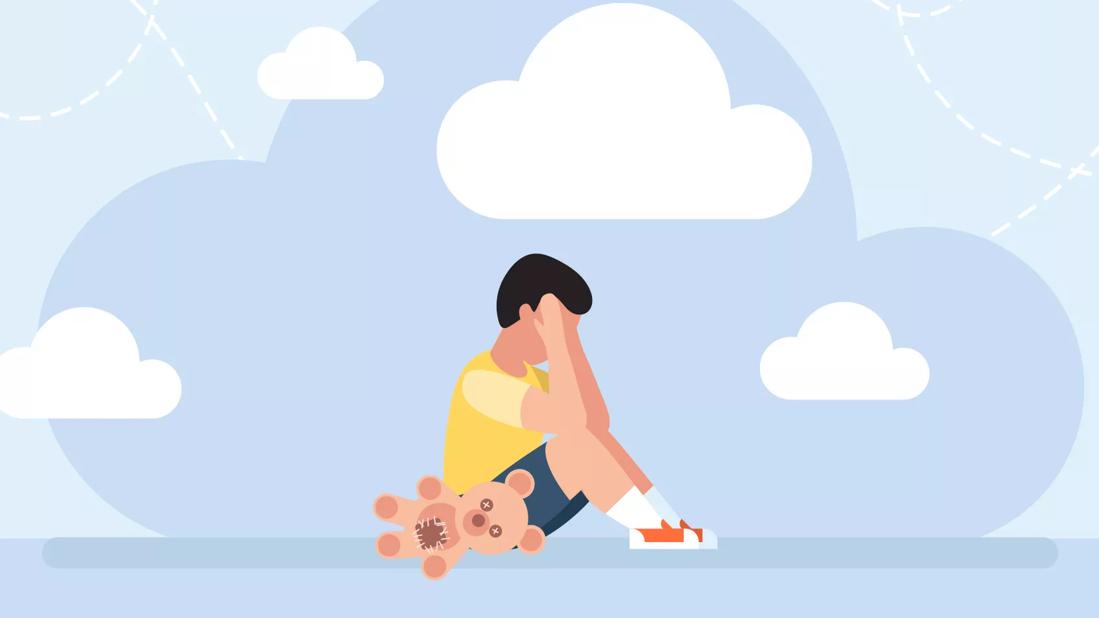
It’s hard to imagine anyone intentionally hurting a child, yet the Centers for Disease Control and Prevention (CDC) estimates that 1 in 7 kids experiences child abuse or neglect in the United States each year. Sadly, most kids know their abusers and are often afraid to report what’s happening to them. That’s why it’s important to know the signs of child abuse.
Cleveland Clinic is a non-profit academic medical center. Advertising on our site helps support our mission. We do not endorse non-Cleveland Clinic products or services. Policy
Pediatrician Eva Kubiczek-Love, MD, shares some red flags to look out for and the best way to get help.
While child abuse laws differ from state to state, Dr. Kubiczek-Love says that the intentional harm or maltreatment of a child under 18 is considered both child abuse and a crime. Child abuse comes in many different types and they can occur at the same time.
Types of child abuse include:
When a child is physically injured or intentionally put at risk by another person.
This includes when a child is raped, forced to perform a sexual act or forced to participate in an act to arouse the abuser. Making children undress, showing children pornographic material or fondling a child’s genitals is also sexual abuse.
Neglect can cause physical and emotional harm. This is a failure to provide adequate food, shelter, affection, supervision, education or medical care.
Emotional abuse involves hurting a child’s emotional well-being and negatively affects their sense of self-worth. Emotional abuse can be verbal, but can also include ignoring, rejecting or isolating a child.
Medical abuse is when someone intentionally tries to make a child sick or places them in danger so they need medical care.
“‘Stranger danger’ gets a lot of attention in the media and it’s something that parents often talk to their kids about. We do need to teach children that if someone claims to know their parents and offers to give them a ride, they should call a parent, grandparent or another trusted adult first,” says Dr. Kubiczek-Love.
However, she stresses that parents need to realize that the perpetrator of sexual abuse is usually someone their child already knows: a family member or a coach, teacher or family friend. They could even be a music teacher or someone who leads an after-school activity.
Signs of abuse aren’t always obvious. Specific signs and symptoms depend on the type of abuse and can widely vary.
Dr. Kubiczek-Love says to watch out for these red flags.
“In addition, children who witness these crimes also may also display the same behavior. However, keep in mind that the presence of these warning signs doesn’t necessarily mean a child is being abused. It’s possible that the symptoms are caused by another stressful situation,” Dr. Kubiczek-Love notes.
Once you suspect that abuse is happening, you need to act to protect the child from any additional harm and seek help immediately.
Here’s what else you can do.
If the child needs immediate medical attention, call 911 or your local emergency hotline. You can also call or text the Childhelp National Child Abuse hotline 24 hours a day at 800.422.4453. Your child’s healthcare provider can also be a valuable resource if you’re not sure where to start.
If you think you’re at risk of abusing your child or believe that you have hurt your child, contact a friend, relative or health professional and make sure your child is somewhere safe and away from you. You may need a counselor to help you understand your feelings and help you find ways to work through them.
If you think the person in question may see the child in the future, make sure all further contact is supervised. Never threaten the suspected abuser or take the law into your own hands. Let the legal system decide the appropriate punishment.
“When you speak up and act on behalf of an abused child, you can help break the silence and end their pain and suffering,” encourages Dr. Kubiczek-Love. “You’re also protecting them from the possible, lasting effects of abuse, such as psychological problems or substance abuse — and helping to break the cycle of violence that often occurs with victims of abuse.”
With sexual abuse, there are a lot of different emotions involved for children, such as guilt and embarrassment. Keep lines of communication open with your child so if something were to happen, they’ll feel comfortable telling you or another trusted adult.
“Having regular ‘check-in’ conversations is a good idea. Even as early as age 4 or 5, it’s OK to talk about body parts with your child. You can point to various parts and say, ‘What’s this?’ Then have your child name the part. Once children reference their private parts, you can say, ‘What if somebody wanted to touch that? What would you do?’ Then encourage them to tell you if it happens,” says Dr. Kubiczek-Love.
She suggests keeping these conversations positive so your child doesn’t feel stressed out. And continue having them as they get older. “Let your children know you’re not there to judge them, but to help them.”
Learn more about our editorial process.
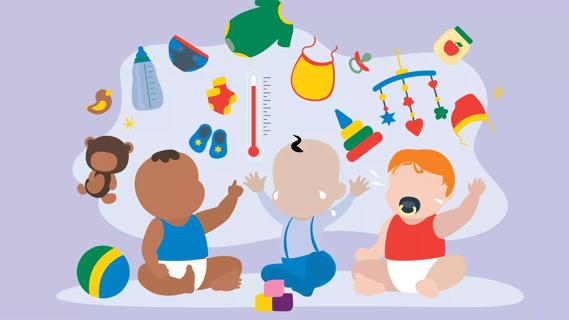
You can help strengthen your child’s immune system by focusing on hand washing and staying up-to-date on their vaccines
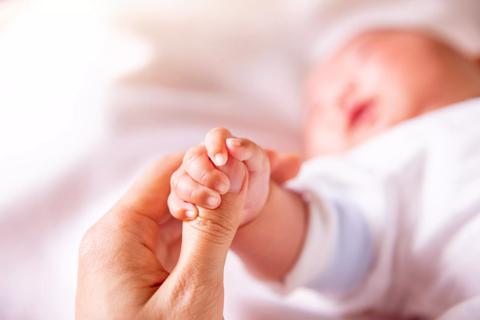
Lanugo — the soft, fine hair that develops in utero — is harmless and will shed within a few weeks
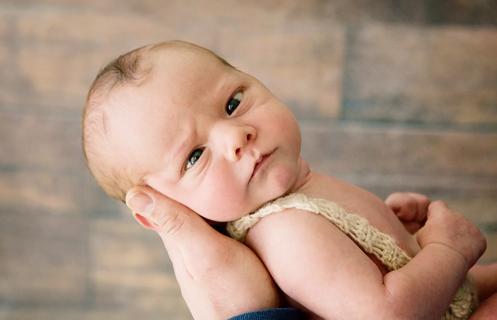
Crossed eyes in a newborn are fairly common, typically harmless and usually go away
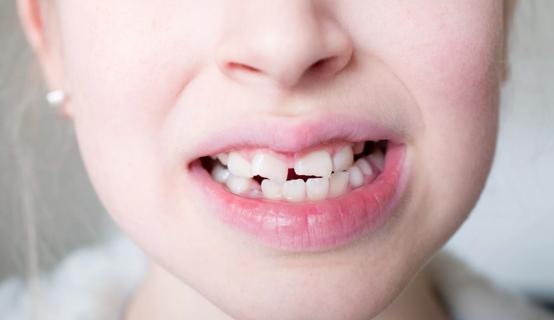
A dental emergency, quick action is key to preventing long-term damage

Severe and debilitating headaches can affect the quality of your child’s life
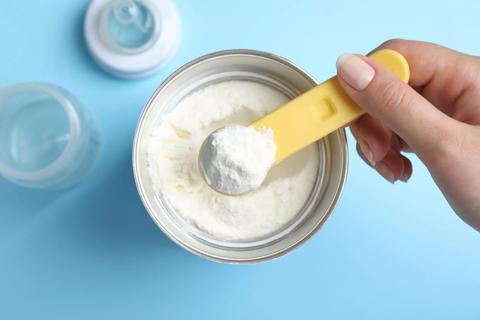
When breastfeeding doesn’t go as planned, you may need to supplement with formula or donor breast milk — and that’s OK
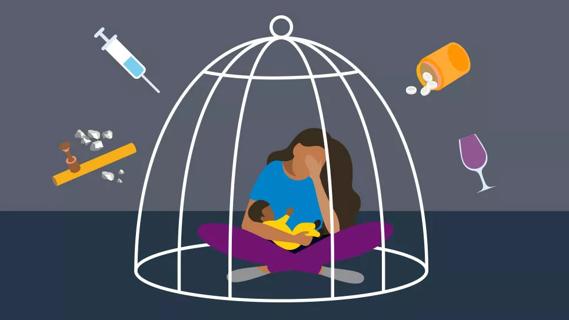
Neonatal opioid withdrawal syndrome, or NOWS, can develop when a birthing parent uses opioids, nonmedical drugs or even some prescription drugs during pregnancy
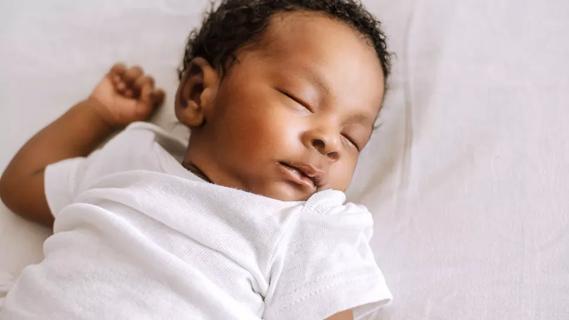
Your baby needs to able to roll in both directions before they can make the switch

Your metabolism may torch 1,300 to 2,000 calories daily with no activity

A gentle touch in all the right places may help drain your sinuses